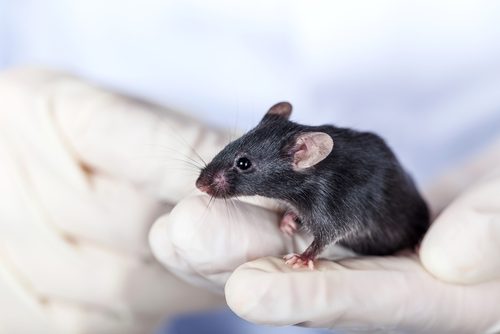Local treatment with the microRNA Let‐7b reduced the size of lesions in mice with endometriosis and lowered the production of proteins that promote the disease, according to a new study.
Researchers from the Yale School of Medicine are now confident this could be a promising therapy for women affected by the condition, since Let-7b controls several signaling cascades that have been implicated in endometriosis without any relevant hormonal side effects.
The findings of the study, “microRNA Let‐7b: A Novel treatment for endometriosis,” were published in the Journal of Cellular and Molecular Medicine.
Endometriosis is a chronic inflammatory disease that is estimated to affect approximately 10% of women of reproductive age.
Current available therapies usually focus on modulating female sex hormones, such as estrogen and progestin (a progesterone-like hormone), to control pain.
Unfortunately, all of these hormone therapies have significant side effects and some might even be contraindicated for women who are trying to conceive.
MicroRNAs – tiny RNA molecules that control the levels of several genes (protein production) – have shown promising results as a therapy for some chronic diseases and cancers.
A previous study by the same team of Yale Medicine researchers demonstrated that the levels of the microRNA Let‐7b were reduced in the blood of women with endometriosis and in animal models of the disease. The team also showed that the loss of Let-7b contributes to the development of the disease.
In this study, researchers tested the therapeutic potential of the microRNA Let‐7b for the treatment of endometriosis in mice..
A total of 10 female mice with induced endometriosis were randomly divided into two groups: those that received an intraperitoneal (through the abdominal wall) injection of the microRNA Let‐7b; and those that were injected with a control microRNA (placebo).
All animals started treatment two weeks after the induction of endometriosis and received injections every three days for two weeks.
Tissue analyses revealed that Let‐7b treatment significantly reduced the size of lesions caused by endometriosis compared to the control.
Then, researchers quantified the levels of genes known to be involved in endometriosis in samples collected from the lesions.
The findings revealed that the levels of several genes known to promote endometriosis growth, including ER‐α, ER‐ß, Cyp19a, KRAS 4A, KRAS 4B, and IL‐6 were significantly lower in lesions collected from mice treated with Let-7b compared to the control.
These findings suggest that microRNA Let‐7b plays multiple roles in the development of endometriosis, affecting estrogen signaling, inflammation, and growth factor receptors.

